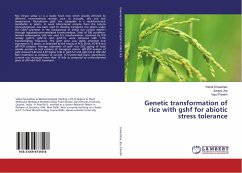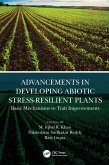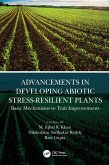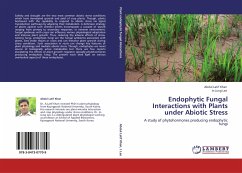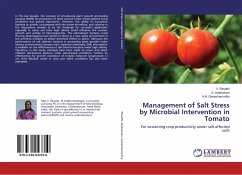Rice (Oryza sativa L.) is a staple food crop which greatly affected by different environmental stresses such as drought, salt and low temperature. Glutathione gshF, the tripeptide is a multifunctional metabolite in plants. A novel bifunctional enzyme from the Listeria monocytogenes), has been used to develop transgenic rice plants under 35s CaMV promoter in the background of indica rice cultivar NAUR-1 through Agrobacterium-mediated transformation. Total of 200 scutellum-derived embryogenic calli was used for transformation, screened by PCR namely gshF-5, gshF-12 and gshF-19, were obtained with 1.5% transformation frequency. The gshF gene was stably inherited and expressed in T2 plants, as indicated by the results of PCR, ELISA, RT-PCR and qRT-PCR analyses. Average expression of gshF was 3.03 µg/mg of total soluble protein in leaf extracts of transgenic plants. qRT-PCR analysis of gshF showed 5.83 and 6.07 higher fold in gshF-5-7 and gshF-5-8 at 200 mM NaCl treatment as compare to control. In transformed plant, glutathione content was increased more than 14 fold as compared to untransformed plant at 200 mM NaCl treatment.

